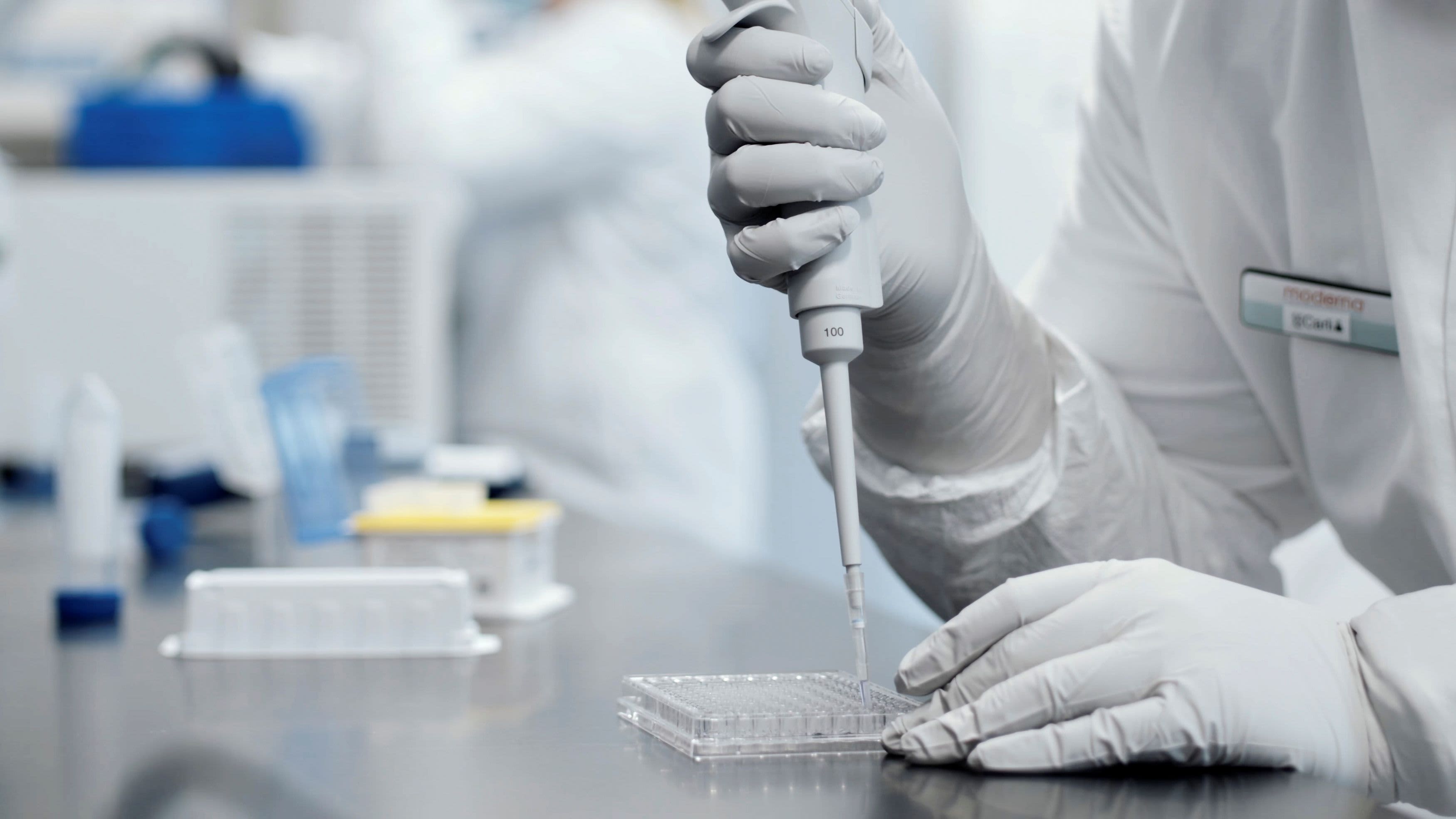
A researcher works in a lab run by Moderna Inc, who said November 16, 2020 that its experimental vaccine was 94.5% effective in preventing COVID-19 based on interim data from a late-stage clinical trial, in an undated still image from video.
Moderna | via Reuters
Dr. Lou Edje enrolled in the Moderna vaccine trial at her health system in Cincinnati, Ohio after three of her relatives died from the coronavirus this year. That made her want to do more to inspire confidence in her community to get vaccinated.
“I felt that I might be able to have an impact that has some credibility, for the patients that I take care of everyday who look just like me,” said Dr. Edje, who is Black and the associate dean of graduate medical education at the University of Cincinnati College of Medicine.
While she hasn’t been told whether she got the actual vaccine during the trial, she had a bit of swelling in her arm after the booster shot — which make her believe she did. That’s helped when patients ask her what to expect.
“Some of the side effects were a little bit more robust, the second time around, so I try and tell them exactly what I went through,” she explained.
It may take months for the general public to get inoculated with new vaccines, once they’re approved. The Food and Drug Administration is expected to quickly clear Pfizer’s vaccine for emergency use after an advisory panel overwhelmingly endorsed the shots on Thursday. The initial doses have been designated for frontline health workers and the elderly in nursing homes.
Yet, African American health professionals and community health groups across the country have already begun to do outreach in Black communities hit hard by the coronavirus. Seven out of ten African Americans know someone who’s been hospitalized or died from Covid according to a Pew Research poll conducted last month. Yet vaccine skepticism runs high. Only 42% of Blacks surveyed say they plan to be vaccinated, compared with more than 60 percent for Americans overall.
“They want to know and have real reasons for trust. They want to know that the process is going to be fair, that they are not being guinea pigs to a system that is rigged against them,” explained Dr. Reed Tuckson, co-founder of The Black Coalition Against Covid, and the former health commissioner of Washington, DC.
The speed at which the Covid vaccine has been developed has been one of the issues that has many Americans wary about being in the first wave to get the shot. But for African Americans the skepticism is also partly based on history. As part of the notorious Tuskegee Study of syphilis, African American men were treated with placebo drugs instead of antibiotics that could cure it to track its progression for years.
The Coalition on Covid has brought together the major African American medical groups, including the National Medical Association and the National Black Nurses Association, as well as leaders from the four historically Black medical schools, including Howard University and Morehouse College, to advocate for African American patients.
On the clinical front, they’ve been pushing government officials at the federal and local level to prioritize access for communities of color where the prevalence of pre-existing conditions like hypertension and diabetes have made people more vulnerable to the virus.
“We should not allow the dissemination of a lifesaving vaccine to worsen health inequities. In fact, it should help to narrow them,” said Tuckson.
In terms of outreach, they’ve held a number of informational town halls online with government leaders like Dr. Anthony Fauci, the nation’s leading infectious disease expert, to address particular concerns of African Americans.
They are also working with community health groups, local churches and advocacy groups that can make a personal appeal from a place of trust, at the grass roots level.
“Fifty percent of a neighborhood will need to go ahead and have the vaccine, to be able to burn out the virus in the other 50%,” explained Dr. Edje. “We really need to have every neighborhood get some immunity for us to have a global effect.”
The fact that it will take time for the general public to gain access to the vaccine could prove to be a silver lining. Health officials say it will let people see how the first wave of those who get the shot react, which can help combat skepticism and fear.




